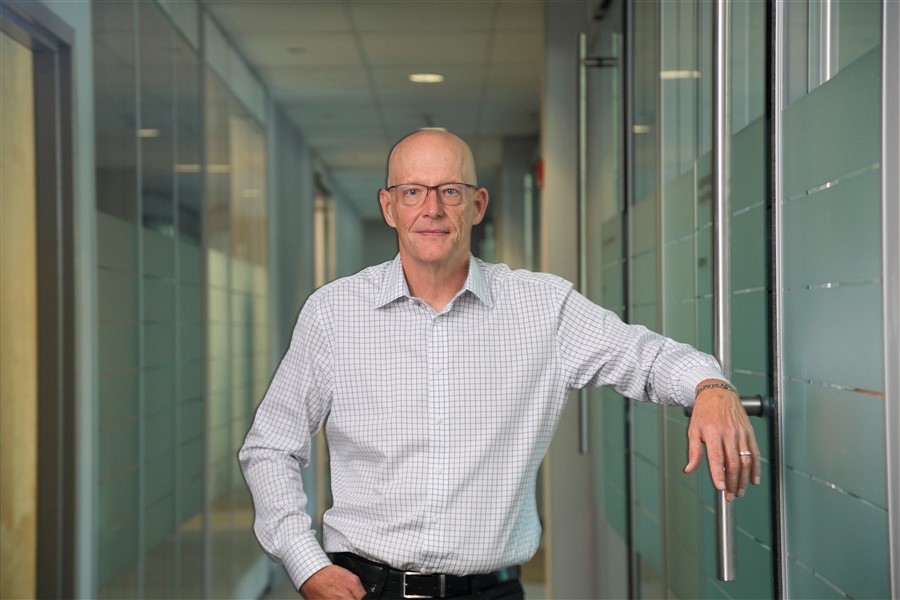Breaking Down the Myths
Dennis Ensing of SWO Angels explains how angel investors and angel groups work
Photo: Dennis Ensing
WHILE MANY STARTUPS dream of headlines celebrating a lavish IPO and a billion-dollar valuation, the reality is that gaining investment in your business starts much smaller, and usually, more locally.
In fact, for many entrepreneurs, the path to success involves finding the right angel investor to provide not only capital, but experience and guidance as well.
Dennis Ensing of SWO Angels supports early and growth-stage companies in Southwestern Ontario. The CEO describes angel investment as an act of support, often through passion for the industries or founders involved.
“Angels once invested in Broadway theatre productions,” Ensing notes. “Just as these patrons of the arts invested due to love of the theatre, business angels invest in companies because of their love of entrepreneurs and business.”
According to Ensing, most angels become actively invested in the companies they support. “Many Angels are retired executives or cashed-out former entrepreneurs. They want to continue doing what they love without the daily stress of running a company. They contribute their time and experience, as well as offer introductions to valuable contacts essential to the company’s success, because they enjoy the thrill of helping entrepreneurs grow their businesses.”
“The good news is, becoming an angel means you are wealthy enough to make private investments, but the bad news is most of your investment will be complete losses! —Dennis Ensing
Most angels also specialize in industries and technologies they are familiar with, and typically only invest in companies within their geographic region.
For founders seeking angel investment, Ensing notes that it is important “that you understand who we are, how we operate, what we look for in potential investments and what we expect in return.”
Angels typically invest between $25,000 to $100,000 per transaction individually, and from $250,000 to $750,000 as a group. And while they are patient, holding an investment for an average of eight years, they do seek returns of at least 10 times their investment, reflecting the risk and added value they provide.
“The good news is, becoming an angel means you are wealthy enough to make private investments, but the bad news is most of your investment will be complete losses!” Ensing says. “The reality, however, is you can invest in a portfolio of as many as 20 or more companies and gain an average return of 27 per cent. Since 10 per cent of your investments will create 90 per cent of your total returns, successful angels take a portfolio approach with multiple companies and multiple rounds within those companies.”
Companies in the London area seeking angel investment will have even greater opportunities, thanks to a new collaborative partnership between SWO Angels, Waterloo’s Golden Triangle Angel Network and Burlington’s Angel One Investor Network.

“The partnering allows entrepreneurs to gain access to a widened scope of industry experts and capital, which will reduce the funding timeline and have a positive impact on the investment process and negotiating power,” Ensing says.
Over the last decade, the three groups have collectively made 241 rounds of investment totalling $84.6 million, and by working together they are increasing opportunities across the board.
“The collaboration between the three networks has increased efficiencies for company selection, due diligence, deal landing and ongoing company support and success. This new partnership allows for maximum success for both investors and entrepreneurs.”
Selected startup founder applicants will now pitch to all three angel groups in the same week, and by presenting to the full network, will have a higher likelihood of filling larger raises by being exposed to the groups’ combined investors, capital and valuable experience.
For more information about becoming an angel investor or obtaining angel investment for your company, visit the SWO Angels website. ![]()

